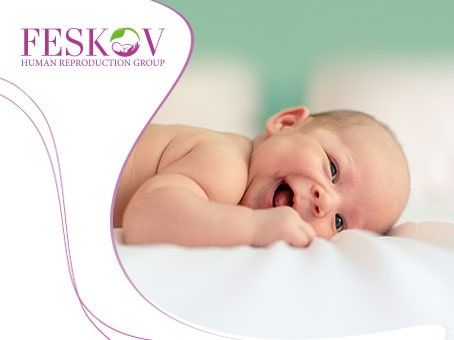As non-traditional types of family become more common, more and more single people choose to be parents of their own will. Feskov Human Reproduction Group has an exclusive surrogacy program for people without a partner, which will help them experience the happiness of parenthood.
Specificities of surrogacy for a single parent
In general, the process for single parents is the same as for any other future mums and dads:
- Medical examinations, tests, specialist consultations, selection of the required treatment regimen.
- Selection of candidates for the role of a surrogate mother (egg or sperm donor) from our verified database.
- Standart IVF procedure using personal or donated genetic material.
- Transplantation of a healthy embryo into the uterus of a surrogate mother.
- Pregnancy and delivery of a surrogate mother.
As in the rest of the world, we use a gestational type of service when the surrogate mother has no connection with the fetus at the genetic level.
The main difference between the process for a married couple is that the oocytes of the intended mother and the sperm of the intended father are used for artificial insemination. For single parents, germ cells are taken from donors.
Surrogacy legislation for singles
Surrogacy already raises many legal issues in each individual jurisdiction. Things get even more complicated when the process is planned not by a couple, but by a single person.
States loyal to singles:
- USA
- Czech Republic;
- Belarus;
- Russia.
In the United States, the laws on this matter for singles are the same as for couples. However, they can vary from state to state and cause some difficulties with the registration of the child.
In Ukraine, the procedure is legal for married couples. But, our team has developed unique services to ensure maximum comfort for single patients:
- personal acquaintance, remote communication with a candidate for a surrogate mother, a donor;
- created embryos during IVF are cryopreserved and transported to the desired country;
- transfer of a surrogate mother to the required state for embryo transplantation;
- childbirth of a surrogate mother in any country in the world.
Thanks to an individual approach, the specialists of the Feskov Human Reproduction Group will select the most convenient option for reproductive services.
Advantages and disadvantages of the process
Arguments ”for”:
- realization of the dream of your own baby even without a partner;
- the presence of a genetic link with the newborn;
- friendship with a surrogate mother;
- easier than adoption due to incomplete family.
Arguments ”against”:
- high cost, which a single person may not be able to afford;
- due to the high cost or prohibition in the home country, the intended parents are forced to seek surrogacy services abroad, which entails additional problems;
- the event requires time, emotional and material resources, which can be difficult to find for a single.
Usually, a person thinks over everything and consults with consultants of specialized clinics or agencies.
What to choose: surrogacy or adoption?
Differences in techniques:
- genetics. There is no doubt that with surrogacy, the future baby will be absolutely healthy physically and genetically. This is ensured by checking surrogate mothers, donors, screening for chromosomal abnormalities of the embryo, examining the baby. Bonus – knowledge about the sex. When adopted, there are no guarantees regarding health and heredity. As there is no genetic connection with the adopted;
- price. Guardianship is cheaper than surrogacy services and associated costs. In addition, foster parents are entitled to benefits from the state;
- terms. Adoption requires waiting, sometimes a long, suitable child. Whereas, in the databases of clinics and agencies, there are many surrogate mothers and donors for any request;
- control. Surrogacy is a completely controlled and anonymous action, up to the delivery of a surrogate mother. Adoption requires more publicity. Moreover, upon adoption, it is the biological mother or the commission that has the right to choose the adoptive family;
- registration of documents. Surrogacy contracts are transparent, detailed, have protection against force majeure and guarantees;
- a sense of parenthood. Conception, pregnancy, childbirth, the first cry of a child – all this gives a sense of belonging and involvement. At the same time, you often adopt not a small child who has already absorbed the environment, upbringing, and traditions of the previous family.
Feskov Human Reproduction Group provides single patients with a reliable support at all stages. Taking upon themselves, if possible, all the troubles and difficulties, leaving people only to enjoy the process of waiting for a miracle.









